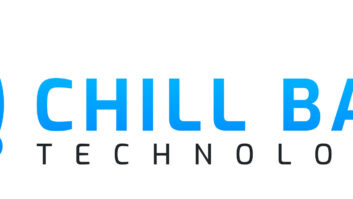LAS VEGAS – The question is not what new technologies will be winners this year, but whether new technologies will succeed at all given the products’ increasing complexity and lack of standards and aging product-centric business models. This was the consensus of the panel at Wednesday’s Emerging Technology Supersession.
‘There’s a lot of technology out there,’ understated Rory Reed, general manager of global electronics industry for IBM, ‘and the consumer electronics companies have to figure out a way of pulling it all together.’
‘It’s not the technology,’ countered session moderator and consultant Gary Arlen, ‘but how the way business is done.’
Both Reed and Arlen summed up sentiments expressed by all the panel members: the lack of standards for many new technologies, primarily digital television; the lack of simplicity in new technology products; and the emergence of services sold along with hardware such as satellite TV, cell phones, satellite radio and PVRs, each represent sea changes in the way both retailers and manufacturers do business.
Many technologies, including home networking, larger capacity storage media and convergence products, were cited as being on the cusp of success or failure based on a shifting technology landscape. Sean Wargo, CEA’s senior industry analyst, cited that out of nearly 70 million homes that have access to broadband Internet access, only nine percent have signed up. Wargo expected the number to jump to 20 million broadband subscribers in 2002.
John Carey, managing director of market research firm Greystone Communications, cited satellite radio as the most likely to emerge successfully this year. ‘It’s not just the traditional techie early adopters who are signing up, it’s people who just want radio,’ Carey reported. ‘Satellite radio is doing to radio what [FM] radio did to radio in the 1970s — it’s more free form and people like that.’
Steve Perlman, founder and president of Moxi Digital, bemoaned the need for consumers to earn advanced degrees in order to operate much of the emerging technology. Perlman polled the audience and discovered that a majority had more than four remote controls in their living rooms. ‘We have to get people to use technology and not be aggravated by it,’ Perlman remarked.
Carey added that because of the increasing complexity of high-tech products, most people found a neighbor or a relative to do the installation, and usually a teenager. Perlman remarked that most products today are ‘plug and pray.’ Mitchell Kertzman, CEO of Liberate Technologies, a director of both Handspring and CNET and an avowed early adopter, added the caveat that ‘making something simple is not simple.’
Wargo indicated that early adopters represented 11 percent of the market, so-called ‘middle’ consumers 24 percent and the mass market 64 percent. Perlman said that he had learned a few things from his WebTV experience. Perlman observed that a manufacturer had to find a service partner ‘to subsidize the box, otherwise it will be hard to reach the mass market with a new technology if it’s priced over $199.’
The merging of service and product raises the question of ‘Who owns the consumer?’ which could create the most vexing headache for both manufacturers and retailers. ‘The more popular the product, the more each side will want to own the customer and the more likely none will succeed,’ noted Kertzman.
Other members of the panel included Christopher Cookson, executive VP and CTO of Warner Brothers, and Jeff Cove, VP of merchandising for Panasonic.













